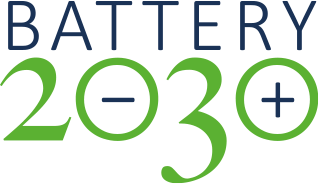Thanks to the interest arisen by the previous four editions of “Open Innovation and Open Science”, the event is again organized during NanoInnovation 2022, thus reaching its fifth edition.
It was decided, for continuity, to maintain the same title, but the contents and aims of the 2021 edition have been revised and reconfigured to keep in due consideration the PNRR scenarios, in terms of sustainability, ‘local’ re-industrialization, rethinking of globalization policies and new requirements of university and post-graduate training courses.
The policies for the use of resources deriving from the application of Recovery Funds will make the relationship between public and private research even more crucial and strategic, with a focus on the valorization of knowledge which will represent a key factor for a concrete and stable economic recovery.
The ability to identify and exploit network skills and knowledge, to manage rapid and complex cooperative processes, to promote inclusive and multi-stakeholder processes to increase the social impact of innovation, to aggregate multidisciplinary skills and knowledge, are increasingly crucial factors for the success of research and innovation.
In the last years the innovation processes have undergone profound changes. The principles of Open Innovation, as a response to the changes in the competitive, technological, scientific environment and the entire approach to research pursued at a national or supranational level according to the principles of Open Science, demonstrate how much the spaces and places of innovation today require careful consideration of the new forms and organizational mechanisms that permeate the action of public and private actors operating in increasingly dynamic contexts, such as those that are determined by the effect of technological convergence, digital transition and the progressive blurring of the boundaries that once allowed to clearly distinguish the various industrial sectors.
The interweaving of relationships between a multiplicity of actors (private and public companies, government bodies and authorities, public and private research bodies, etc.), giving rise to particularly complex networked systems, determines the generation of new organizational forms with a “hybrid nature” (strategic alliances, partnerships, joint ventures, consortia, temporary entrepreneurial formations, supply chain systems, etc.) which are based on hybrid mechanisms of regulation and management of relations (market, hierarchy, clan, trust), whose understanding and correct application, of a contextual nature with respect to the needs of the various actors participating in the innovative projects, contributes significantly to determining their effectiveness and efficiency.
In such a framework, the current national context is strongly conditioned by the availability of huge financial resources made available by Europe through Next Generation EU and managed through the National Recovery and Resilience Plan (PNRR). At the same time, the international situation demonstrates various structural criticalities, first of all that concerning the supply of electronic devices on a global market but with production concentrated in some geographical areas. This resulted in the adoption of specific development and policy plans (Chips Acts) both by Europe (February 2022) and USA (July 2022).
The 5th edition of Open Innovation and Open Science was therefore divided into 4 sessions, focusing attention on 3 main topics as highlighted below. During these sessions some of the main research organizations, universities and large national companies, SMEs, national professional associations and territorial bodies will discuss models and experiences related to:
- Policies for the creation and the sustainability of research and technological infrastructures
- Technology transfer
- Principles and methods for open science
- Principles and methods for open innovation
- Local initiatives and approach towards processes and products integration and sustainability
- Higher education system: innovation policies and requirements
